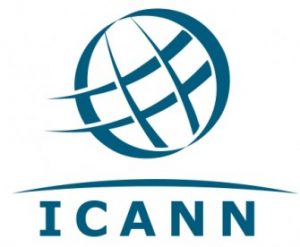Here are some places to get started if you want to contribute to the ICANN community.
Do domainers have a role in ICANN?
Well, from my experience going to a handful of ICANN meetings, if you want to find the domain investors, you should head to the bar.
There’s no “domainer constituency” to join, so domain investors need to find common ground within other groups as their inroad to the organization.
And there’s some interesting stuff going on now, so it might be worth getting involved. ICANN is currently developing policies for the next round of new TLDs, phasing out obsolete ccTLDs based on geopolitical changes, and undertaking a review of the UDRP. Finding a place in the community is a first step to shaping the discussion around these issues and others. I asked around and found three places that could make good onramps for domainers.
First up is a group that has a lot of domain investors in it already. The Business Constituency (BC) is part of the Non-Contracted Parties House (NCPH) of the Generic Names Supporting Organization (GNSO). (Yes, the initialisms are a bit of a turnoff to those getting their feet wet at ICANN.) The GNSO sets policy for the world of TLDs, so it is a big contributor to the operation of the domain industry. The BC is the home for domain investors and other commercial interests. It counts many domain investors and The Internet Commerce Association as members, but also some of the IP interests. Some of its members advocate for an open and free secondary market. Many also work to ensure that “domainer” is not a dirty word. This past March, the Internet Commerce Association contributed a piece to the BC newsletter to remind the community that the secondary market in domains is both natural and important for the overall health of the internet.
The At-Large Advisory Committee (ALAC) represents “the interests of end-users” — in other words, everyone on the internet. That’s why many newcomers start by participating with ALAC or one of its Regional At-Large Organizations (RALOs). Domainers may struggle to find opportunities to forward the interests of the domain industry, but the ALAC sometimes plays the role of watchdog for transparent and responsive leadership from the ICANN board and organization.
Then there’s a group that might seem counterintuitive: the Intellectual Property Constituency (IPC), another group within the NCPH. This may seem like an odd group for domainers to join, and indeed, the expertise here may end up on the opposite side of the table. The IPC is the home of attorneys, intellectual property professionals, and others with a stake in the intersection between the internet and intellectual property law. That said, there are many reasons for domain investors to engage with this group. Domainers need to show IP interests that they are good people and aren’t necessarily on opposite sides of the table, even if they sometimes disagree on how goals should be achieved.
These three groups represent some starting places for domainers to get involved with ICANN. I’m sure readers involved in the ICANN community can suggest others.
Or, at the next in-person ICANN meeting, just head to the bar.







Thanks Andrew. A couple of comments not just for domain investors, but anyone that wants to get involved. ICANN has a number of leadership positions in the policy community that often go to the insiders because there aren’t always enough others that volunteer.
I am a big fan of people applying for these positions if they have the time to commit. The GNSO Council, for example, has 3 members appointed by the nominating committee. In theory they are intended for persons that aren’t necessarily affiliated with an existing constituency. The At-Large and ccNSO also have such appointments. If you have the time, apply! They are always looking for great candidates. For that matter, there are 2 or 3 appointments to the ICANN Board that are made by the nominating committee every year, but that requires a ton of time and unless you have an employer that pays you regardless of spending so much time on the Board, it is not for most people. But if you have the time, and the skills, as many do, I say go for it!
Its a little late to apply this year, but come January next year, the process for volunteers to apply begins again.
Finally, many policy development processes are completely open. Not all are, but historically they have been. You can join those as an individual. And I have seen many individuals put in a ton of work and make names for themselves by making valuable contributions. It can be intimidating at first, but if you commit, and are willing to put in the time, it can be extremely rewarding.
I try to help newcomers as much as possible, so if you want more information, feel free to reach out.
Can you give an idea of the time requires to be, say, on the GNSO Council?
Most stakeholder group / constituency meetings are “open” so anyone who wants to can observe. When the ICANN meetings return to some semblance of normal those meetings should give people an idea of what kind of topics the various groups are interested in.
It is an acronym soup and it can be completely overwhelming at first.